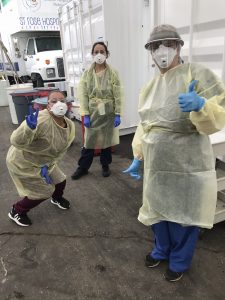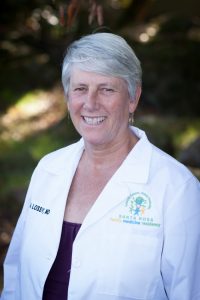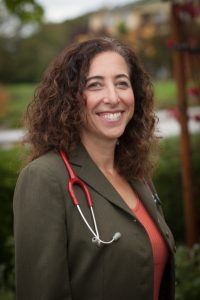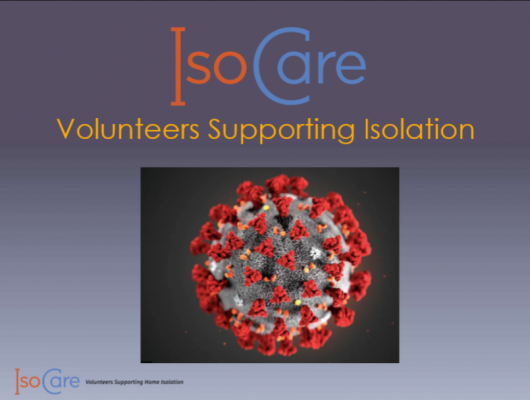
IsoCare is a doctor-led volunteer organization set up to bridge an important gap in health care: the lack of support for patients ordered by their physician to quarantine or self-isolate at home.
It’s a question of health equity: Many patients infected or exposed to COVID-19 are required to self-isolate or quarantine for two weeks, but those who live in small, cramped quarters or lack access to food and supplies cannot do so safely. IsoCare was created to bridge that gap and provide a safety net for parents so they can stay at home safely — and not infect their loved ones and community members. It can also be used for contact tracing to stop the spread of the virus, according to IsoCare’s founders.
WHO SHOULD WATCH THIS WEBINAR?
Anyone interested in supporting patients ordered to self-isolate or quarantine at home to prevent the spread of COVID-19.
OUR TOP TAKEAWAYS:
-
- Supporting low-income patients in quarantine and home isolation is a matter of health equity and social justice. It is unfair to ask low-income patients to self-isolate without financial and healthcare support. Many lack savings, a private bathroom and suffer from hunger, according to IsoCare and other safety net organizations. Without help paying for rent, food and basic supplies, patients will be forced to to to work, thus violating their order to quarantine or self-isolate.
- There is a huge gap in health care for patients asked to self-isolate or quarantine. In some places, law enforcement has threatened to fine or cite patients who violate quarantine and home isolation. This is cruel and counter-productive. Supporting patients through education, referrals to community organizations and, if necessary, alternative arrangements for self-isolation will allow them to protect themselves, their loved ones, and the larger community.
- Building a safety net for low-income patients can help stop the spread of COVID-19. By building trusting relationships, physicians and volunteers can find out what patients need in order to stay home. They will also be able to do contact tracing and get in touch with friends, relatives and coworkers the patient may have unwittingly exposed to the disease.
- Groups like IsoCare urgently need government and health care funding to be sustainable. Dr. Panna Lossy of Sonoma County, California recalls that she started IsoCare as a volunteer group in March 2020 within a matter of days because the need was so urgent. “At the time, I think we expected that the pandemic would last for a few months, but now that there’s no end in sight, it’s clear we need to find a source of funding to be sustainable.” IsoCare is interested in exploring long-term solutions, such as subscriptions for services from other counties or healthcare organizations to pay for training, technical support and workflow scripts.
Presenter bios:
-
 Dr. Panna Lossy, MD, is the founder of IsoCare. She is a family medicine physician and faculty at the Sutter Santa Rosa Family Medicine Residency, where she is also the reproductive health lead. She is president of the Northbay chapter of the California Academy of Family Physicians and co-founder of Health Professionals for Equality and Community Empowerment (H-PEACE). Lossy graduated from the UCSF/UC Berkeley Joint Medical Program and served as a volunteer in the Peace Corps in Thailand from 1986 to 1988. After the massive 2017 wildfire in Santa Rosa, she also developed a website with practical tips for providing health care in evacuation centers.
Dr. Panna Lossy, MD, is the founder of IsoCare. She is a family medicine physician and faculty at the Sutter Santa Rosa Family Medicine Residency, where she is also the reproductive health lead. She is president of the Northbay chapter of the California Academy of Family Physicians and co-founder of Health Professionals for Equality and Community Empowerment (H-PEACE). Lossy graduated from the UCSF/UC Berkeley Joint Medical Program and served as a volunteer in the Peace Corps in Thailand from 1986 to 1988. After the massive 2017 wildfire in Santa Rosa, she also developed a website with practical tips for providing health care in evacuation centers. Deirdre Bernard-Pearl, MD, is the pediatric medical director of Santa Rosa Community Health. A pediatrician and graduate of Stanford University School of Medicine, she completed her Internship and Residency at Children’s Hospital Oakland. She has a strong interest in trauma-informed care and serves on the Clinical Implementation Subcommittee for California’s ACEs Aware initiative through the state’s Office of the Surgeon General. She is a co-founder of IsoCare and, like Lossy, she is a fellow in the UCSF-California Health Care Foundation Clinical Leadership Program.
Deirdre Bernard-Pearl, MD, is the pediatric medical director of Santa Rosa Community Health. A pediatrician and graduate of Stanford University School of Medicine, she completed her Internship and Residency at Children’s Hospital Oakland. She has a strong interest in trauma-informed care and serves on the Clinical Implementation Subcommittee for California’s ACEs Aware initiative through the state’s Office of the Surgeon General. She is a co-founder of IsoCare and, like Lossy, she is a fellow in the UCSF-California Health Care Foundation Clinical Leadership Program.
For more information:
“IsoCare: Creating a Safety Net for COVID-19 Patients in Home Isolation,” Diana Hembree, Center for Care Innovations, June 8, 2020.
IsoCare website. An overview of IsoCare and an interview with the California Academy of Family Physicians.
“When Quarantining at Home Puts Famlies at Risk,” MaryAnn Dakdak, MD. Fresh Perspectives, American Academy of Family Physicians.
Find this useful or interesting? We’re constantly sharing stuff like this. Sign up to receive our newsletter to stay in the loop.

